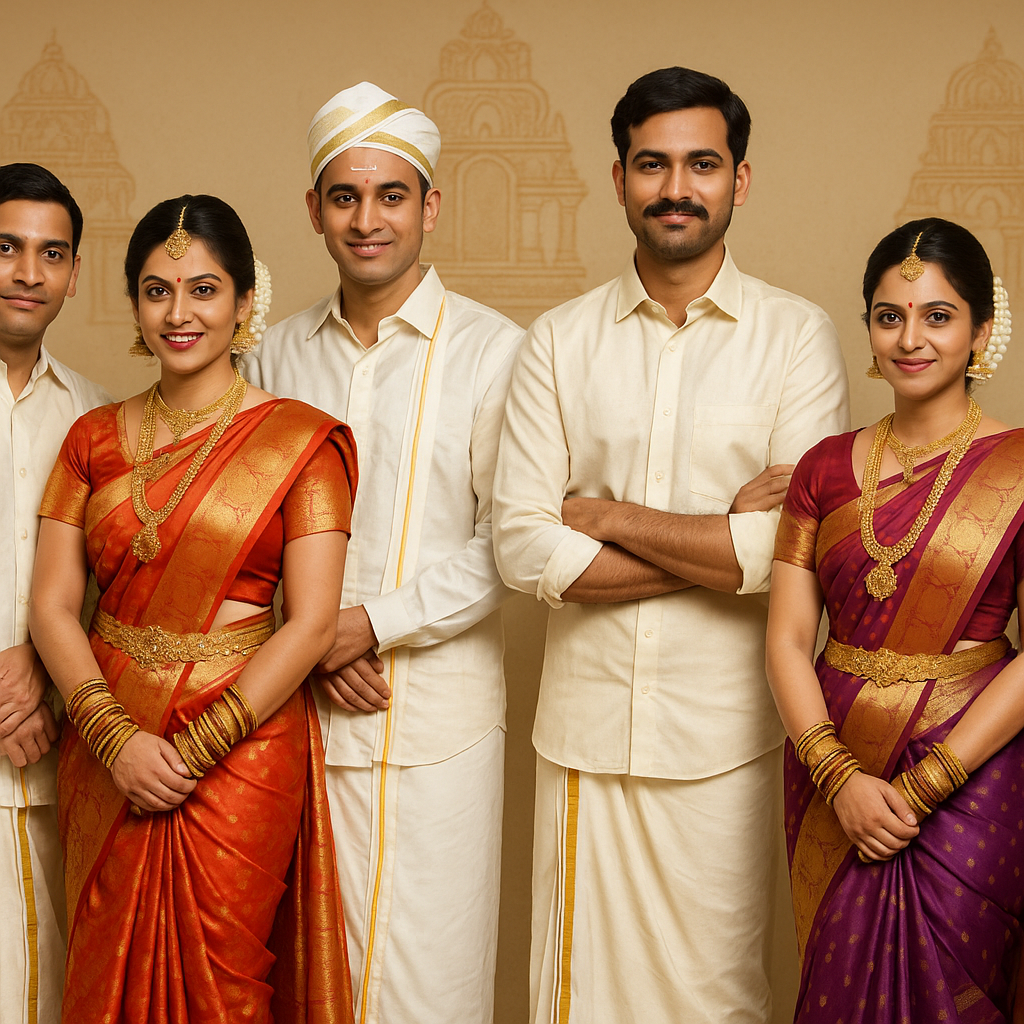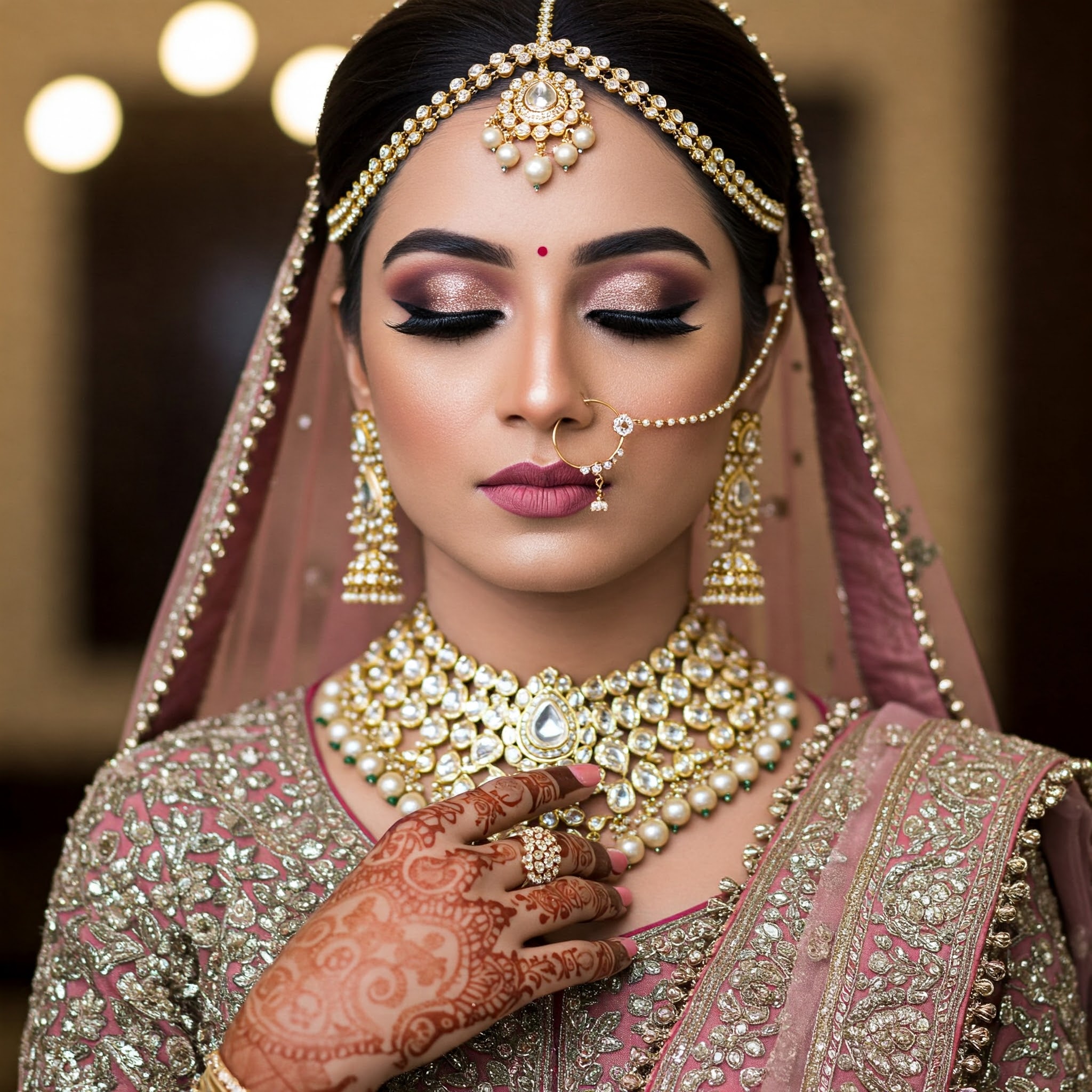
Caste and Subcaste Preferences in Tamil Matrimony: Tradition Meets Technology
22-May-2025 DigiShaadi
Introduction
Marriage in Tamil culture is not just a bond between two individuals—it’s a sacred union that intertwines families, customs, and centuries-old traditions. In this deeply rooted system, Tamil caste marriage continues to influence partner preferences across generations. Even as the Tamil diaspora expands globally and young professionals lean toward compatibility and lifestyle alignment, subcaste in Tamil matrimony remains a subtle but powerful force in how matches are chosen.
With the rise of platforms like DigiShaadi's Tamil Matrimony Online, the matchmaking process has become more accessible and inclusive, even as caste filters and cultural preferences remain critical to many users. This blog explores the caste and subcaste dynamics in Tamil matchmaking—both traditional and digital—offering insights into the evolving landscape of Tamil matrimony.
Understanding the Role of Caste in Tamil Matrimony
1. Historical Significance
The caste system in Tamil Nadu dates back thousands of years, originally tied to varnas (social duties) and jatis (occupational communities). Over time, it evolved into a rigid societal structure influencing lifestyle, rituals, and marriage.
2. Marriage as a Cultural Contract
Tamil marriages are often seen as the continuation of lineage and heritage. Choosing a life partner within the same caste or subcaste ensures ritual consistency, linguistic familiarity, and similar family traditions.
3. Preserving Societal Balance
For many families, especially in rural and semi-urban Tamil Nadu, marrying within one’s caste or subcaste helps preserve social order, economic alliances, and ancestral values. It’s about more than compatibility—it’s about maintaining a community identity.
Key Tamil Castes and Their Matrimonial Practices
1. Iyer (Tamil Smartha Brahmins)
Philosophy: Followers of Adi Shankaracharya’s Advaita Vedanta
Subcastes: Vadama, Ashtasahasram, Brahacharanam, Vathima, and others
Marriage Features:
Horoscope matching (especially for dosham)
Strict adherence to rituals like Oonjal, Kanyadaanam, and Sapthapadi
Brides and grooms are often highly educated professionals (engineering, medicine, academia)
Digital Trends: Younger Iyers abroad use online matrimony platforms but still apply filters for subcaste and language fluency.
2. Iyengar (Vaishnavite Brahmins)
Belief System: Vishishtadvaita Vedanta, strong devotion to Lord Vishnu
Subcastes: Vadakalai (northern sect) and Thenkalai (southern sect)
Unique Traditions:
Wedding mantras differ from Smartha rituals
Panchasamskara and Sesha Homam are integral
Matrimony Preferences:
Iyengars often seek intra-subsect matches, and temple-centric traditions play a key role in rituals
3. Chettiar
Occupations: Historically involved in finance, business, and trade
Subgroups: Nagarathar, Devanga Chettiar, Vellalar Chettiar
Matrimony Practices:
Matches often chosen within the same clan (kudisai)
Horoscope, economic standing, and family prestige are core selection criteria
Wedding Style: Known for grandeur, gold-laden customs, and tightly-knit community networks
4. Gounder
Subcastes: Kongu Vellalar, Kamma Gounder, Vettuva Gounder
Region: Western Tamil Nadu (Coimbatore, Salem, Erode)
Marriage Norms:
Strong preference for land-holding alliances
Gounder weddings emphasize simplicity with rich community participation
Modern Outlook: Educated Gounder youth are entering engineering, IT, and medicine—and are increasingly using digital matrimony tools with caste filters.
5. Vanniyar (Vanniya Kula Kshatriyas)
Region: Predominantly in Villupuram, Kallakurichi, Cuddalore
Subcastes: Gounder Vanniyars, Padayatchi, etc.
Matrimony Aspects:
Matchmaking typically within village or sub-village (ur or kudumbam)
Community elders are often involved in alliance approval
Modern Shifts: Youth seeking careers in the police, armed forces, and politics are also seeking partners through online channels
6. Mudaliar
Subgroups: Agamudayar, Thuluva Vellalar, Sengunthar Mudaliar
Background: Historically rulers, landlords, and administrators
Marriage Traditions:
Affluent, progressive families often look for educated, professionally established matches
Equal emphasis on horoscope and professional status
Popular Regions: Kanchipuram, Vellore, Tiruvannamalai
7. Naidu
Region: Bordering Tamil Nadu and Andhra Pradesh
Subgroups: Kamma Naidu, Balija Naidu
Marriage Expectations:
Often bilingual (Tamil & Telugu), hence more flexible in caste-based decisions
Economic and professional stature plays a major role in matchmaking
Subcaste in Tamil Matrimony: A Finer Filter
Subcaste distinctions carry just as much weight as the broader caste. Here’s how they play out:
Gotra Consideration: In Brahmin communities, matches must avoid same gotras to prevent consanguinity
Dialect & Ritual Variation: Vadakalai Iyengars, for example, recite Sanskrit differently from Thenkalais
Region-Specific Practices: Vadama Iyers from Palakkad have different customs than those from Kumbakonam
Clan Ties in Chettiar Matches: Many Chettiar subcastes won’t marry into the same clan, even if broader caste matches
Digital Matrimony and the Role of Caste Filters
With the increasing popularity of online matrimonial platforms, caste-based matchmaking has found a new digital home.
1. Search Filters
Websites like DigiShaadi allow users to narrow down matches by:
Caste and subcaste
-
Language preference
-
Community and region
-
Gotra and horoscope preferences
2. Private Community Portals
Some communities have exclusive matchmaking platforms or apps—like dedicated apps for Kongu Gounders or Nagarathars.
3. Verified Profiles and Background Checks
DigiShaadi’s Tamil Matrimony Online ensures authenticity through document verification, building trust among communities where caste-based alliances are crucial.
Evolving Attitudes: Tradition vs. Modernity
1. Urban Youth and Intercaste Marriages
Educated Tamil youth in metros or abroad are increasingly open to marrying outside their caste—especially if core values align.
2. Parental Influence Still Strong
Despite modern aspirations, many matches are made with strong parental input. Caste is often a “must-have” criterion in families that follow traditional norms.
3. Progressive Marriages Among NRIs
In countries like the US, UK, Singapore, and UAE, Tamil professionals are balancing tradition with choice. Caste is considered, but shared vision, lifestyle, and compatibility are increasingly prioritised.
How DigiShaadi Bridges the Gap
DigiShaadi is committed to preserving the essence of Tamil matrimonial traditions while offering a tech-powered matchmaking experience.
Key Features:
Community-Specific Matchmaking: Easily search by Iyer, Chettiar, Gounder, Mudaliar, and other caste filters
Location-Aware Matching: Whether you're in Chennai, Coimbatore, or California, connect with Tamil partners near you
Safety First: Verified profiles, privacy settings, and personalized support
To find your ideal match, check out How to Find Your Perfect Tamil Life Partner.
Final Thoughts: A Tradition in Transition
Tamil caste marriage and subcaste preferences remain a powerful part of matrimonial decision-making, but they are evolving with changing times. For many, caste offers a sense of familiarity and shared heritage. For others, especially younger Tamils, it’s becoming one of many factors—not the only one.
Whether you're a devout Iyengar in Chennai, a progressive Gounder in Sydney, or a Chettiar entrepreneur in Singapore, DigiShaadi helps you navigate both worlds—tradition and modernity—with ease.




